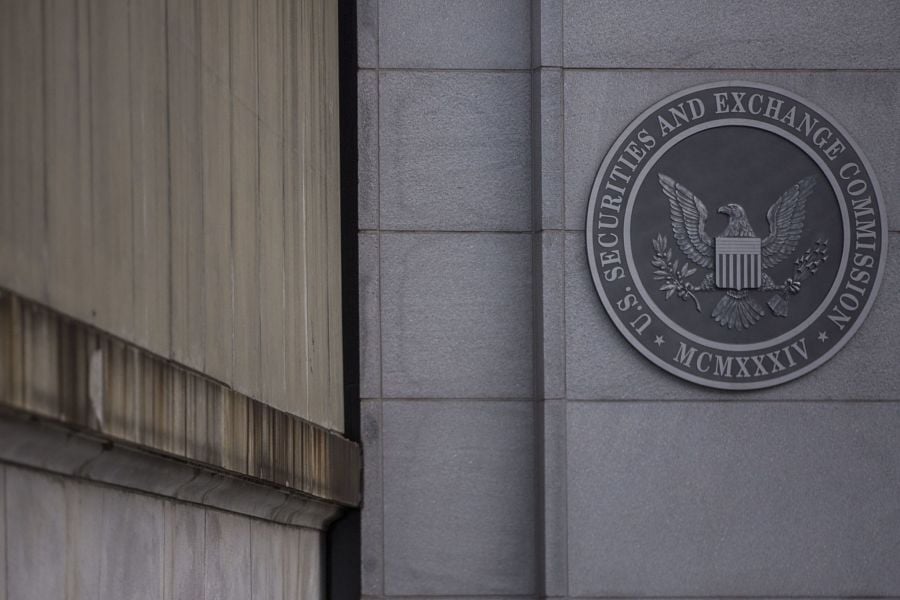

An SEC proposal that would force investment advisers to do more to oversee outsourcing immediately drew criticism for the regulatory burden it would foist on small firms.
But some advisers welcome the Securities and Exchange Commission’s effort to impose minimum due diligence and monitoring requirements for those who turn to third parties for functions such as portfolio management, indexing, trading services and software.
“Scrutiny should not be something that scares advisers away, especially if they’re fiduciaries,” said Tyler Whitehouse, director of financial planning at RMR Wealth.
His firm uses about 30 model portfolios for about $800 million of its assets under management, Whitehouse said. The strategy, though, is customized for particular investors based on their investing goals.
“I think it’s easier to justify the model if you provide planning prior to and during the engagement,” he said. “It goes back to know your client. If you have a robust compliance department within your RIA, and they can monitor and review this stuff, you’re on third base” in terms of meeting a higher outsourcing standard.
Financial technology firms deserve stronger vetting, said Leibel Sternbach, chief technology officer at Fusion Capital Management. He has seen many examples of problems that arise — including miscalculated fees and botched transactions — when functions such as trading, billing, reporting and record keeping are handed off to a third-party firm.
“FinTech has been the wild west and for too long firms have been able to sidestep responsibility by saying that they are tech companies and not investment advisors,” Sternbach wrote in an email. “I think this rule, if it passes will finally shine a light on the dark corners of our industry that are hurting both advisors and clients. It’s time for tech and service providers to be held to the same standards as their clients and share responsibility for their actions.”
The SEC voted 3-2 in favor of the proposal, which is open for a 60-day comment period. Democrats on the commission said they're concerned about potential investor harm if advisers fail to meet fiduciary and other obligations when they outsource services.
Critics pointed out that under the potential rule, a “covered function” is broadly defined as one that's necessary to providing advisory services and could materially impact clients if it is performed poorly.
The rule would be “subject to wide interpretation and inconsistent application by advisers,” Abby Bertumen, counsel at Morgan Lewis, said in a statement.
Almost any kind of outsourcing would fall under the rule, said Republican SEC Commissioner Mark Uyeda.
“What is a chief compliance officer to do? An already burdensome regulatory regime is made ever more burdensome when the functions that trigger the rule’s requirements are not clearly spelled out,” Uyeda said during Wednesday’s SEC open meeting, where he voted against releasing the measure for public comment.
“The economic analysis fails to account for the substantial burden that would likely be placed on small advisers,” he added.
The specific steps that advisers would have to follow to show that outsourcing is appropriate overlap with their existing fiduciary duty, Bertumen said.
“Such a prescriptive requirement … seems redundant and not necessarily appropriate for the unique facts and circumstances of any particular outsourcing arrangement,” she said.

Carson is expanding one of its relationships in Florida while Lido Advisors adds an $870 million practice in Silicon Valley.

The approval of the pay proposal, which handsomely compensates its CEO and president, bolsters claims that big payouts are a must in the war to retain leadership.

Integrated Partners is adding a husband-wife tandem to its network in Missouri as Kestra onboards a father-son advisor duo from UBS.

Futures indicate stocks will build on Tuesday's rally.

Cost of living still tops concerns about negative impacts on personal finances
RIAs face rising regulatory pressure in 2025. Forward-looking firms are responding with embedded technology, not more paperwork.
As inheritances are set to reshape client portfolios and next-gen heirs demand digital-first experiences, firms are retooling their wealth tech stacks and succession models in real time.
